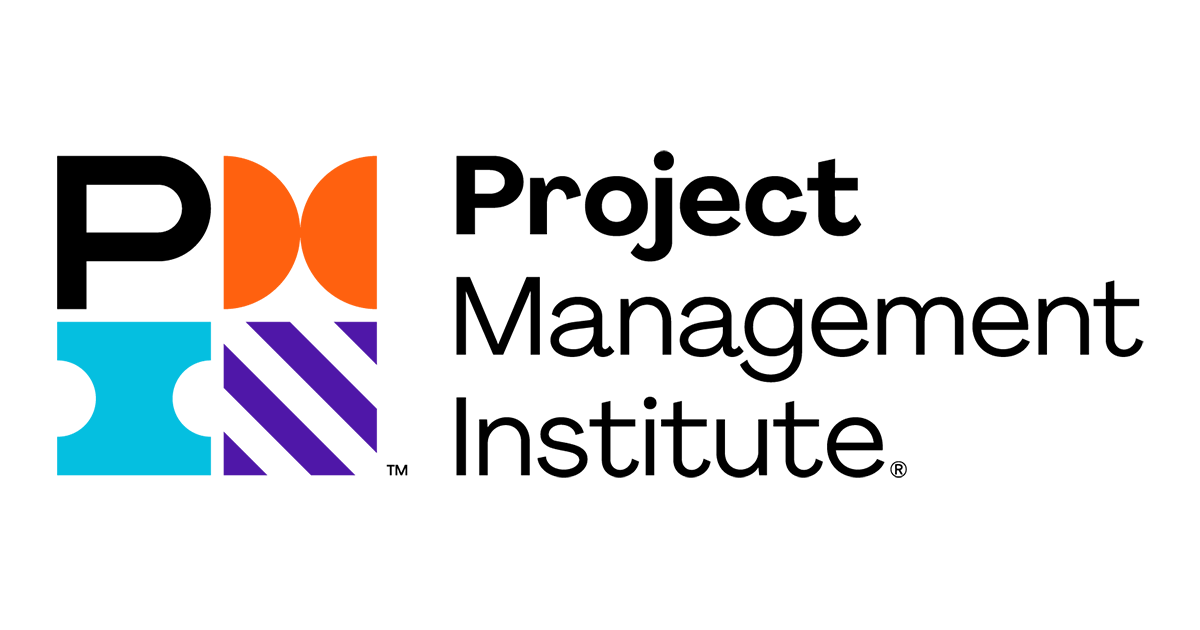Have you ever wondered who ensures that complex tech projects, like launching a new app or rolling out a software update, stay on track, on budget, and meet all technical requirements? That's where a Technical Project Manager (TPM) comes into play. As technology becomes the backbone of nearly every business operation, the role of a TPM is more crucial than ever.
In essence, a Technical Project Manager is the linchpin between technical teams and business objectives. They possess a unique blend of technical expertise and project management skills, allowing them to guide projects from conception to completion while ensuring that both technical and business goals are met. In a world where tech innovation drives business success, TPMs are the unsung heroes who make it all happen.
 What Is a Technical Project Manager?
What Is a Technical Project Manager?

Defining the Role
Key Responsibilities
A Technical Project Manager (TPM) is responsible for overseeing the planning, execution, and delivery of technology-driven projects. These projects can range from software development and IT infrastructure upgrades to implementing complex systems within an organization. A TPM’s day-to-day tasks typically include:
- Project Planning: Defining the project scope, objectives, and deliverables, while also creating detailed project timelines and milestones.
- Resource Management: Allocating resources, including team members, budgets, and tools, to ensure that the project stays on track.
- Risk Management: Identifying potential risks and developing mitigation strategies to keep the project moving smoothly.
- Communication: Acting as the primary liaison between technical teams and stakeholders, ensuring everyone is aligned on project goals and progress.
- Quality Assurance: Ensuring that the final deliverables meet the required standards and are delivered on time.
Skills and Expertise
To be effective, a TPM must possess a combination of technical and managerial skills. On the technical side, they should have a solid understanding of the technology involved in the projects they manage. This might include knowledge of software development, IT infrastructure, or systems architecture. Being able to "speak the language" of the technical teams is crucial for a TPM to effectively communicate requirements and resolve issues.
On the managerial side, a TPM needs to be proficient in project management methodologies, such as Agile, Scrum, or Waterfall. They should also have strong leadership skills to guide teams, make critical decisions, and ensure that the project stays on track. Moreover, excellent communication skills are essential to keep stakeholders informed and engaged throughout the project lifecycle.
The Importance of a Technical Project Manager
Why Companies Need TPMs
In today's fast-paced, tech-centric world, businesses need to deliver projects quickly and efficiently to stay competitive. This is where a TPM becomes invaluable. They serve as the bridge between the technical teams—who are focused on building and implementing solutions—and the business stakeholders—who are concerned with the project's alignment with overall business objectives. Without a TPM, these two groups might struggle to communicate effectively, leading to delays, budget overruns, or projects that fail to meet business needs.
A TPM ensures that both sides are on the same page, translating complex technical details into language that stakeholders can understand and, conversely, conveying business requirements to the technical teams in a way that makes sense to them. This dual role is critical for the smooth execution of any technology project.
Impact on Project Success
The presence of a skilled TPM can significantly enhance the chances of project success. By meticulously planning and managing each phase of the project, a TPM helps to avoid common pitfalls such as scope creep, resource misallocation, and missed deadlines. Their ability to foresee potential issues and proactively address them reduces the risk of project failure.
Moreover, a TPM’s focus on quality assurance ensures that the final product not only meets technical specifications but also aligns with the strategic goals of the business. This alignment is key to delivering projects that provide real value to the organization, ultimately contributing to its success in the marketplace.
 Key Skills and Qualifications for a Technical Project Manager
Key Skills and Qualifications for a Technical Project Manager
Essential Technical Skills

Technical Proficiency
To excel as a Technical Project Manager (TPM), having a strong technical foundation is non-negotiable. While a TPM doesn't necessarily need to be a coding expert, understanding the basics of coding languages, systems architecture, networking, and software development processes is crucial. This knowledge enables a TPM to effectively communicate with technical teams, anticipate potential challenges, and make informed decisions throughout the project lifecycle. For instance, understanding how code is structured helps a TPM appreciate the complexity of certain tasks, allowing for more accurate project timelines and resource allocation.
Moreover, a TPM's technical proficiency helps in troubleshooting issues, as they can identify the root causes of problems and work closely with the technical team to resolve them. This capability not only saves time but also builds trust between the TPM and the technical staff, fostering a more collaborative work environment.
Project Management Tools
In addition to technical knowledge, familiarity with project management tools is essential for a TPM. Tools like Jira, Trello, Asana, and Microsoft Project are widely used in the industry to track progress, manage tasks, and collaborate with team members. A TPM should be proficient in using these tools to create and update project plans, assign tasks, monitor progress, and generate reports for stakeholders.
These tools help in maintaining transparency and accountability within the project team. For example, Jira is particularly popular in Agile environments, where it is used to manage sprints, track bugs, and facilitate communication among team members. Knowing how to leverage these tools effectively can make a significant difference in the smooth execution of projects.
Critical Soft Skills
Communication
Clear and effective communication is one of the most important skills for a TPM. They must be able to articulate complex technical concepts in a way that non-technical stakeholders can understand, ensuring everyone involved in the project is on the same page. This requires not only technical knowledge but also the ability to simplify and convey information without losing essential details.
Good communication skills also mean being able to listen to the needs and concerns of both the technical team and the stakeholders, mediating between the two when necessary. Whether it's through regular project updates, meetings, or written reports, a TPM's communication must be consistent, transparent, and adaptable to the audience.
Leadership and Team Management
Beyond communication, a TPM must be an effective leader. Leadership in this context means more than just managing tasks; it involves inspiring and motivating a team of technical professionals to achieve their best work. A TPM should create an environment where team members feel valued, supported, and challenged.
Effective leadership also includes conflict resolution and decision-making. Technical projects often involve high-pressure situations where quick decisions are needed. A TPM must be able to weigh options, consider the input of their team, and make decisions that will keep the project on track. Additionally, they must manage team dynamics, ensuring that everyone works together cohesively toward the common goal.
Educational Background
Relevant Degrees
To become a TPM, a solid educational background in a technical field is often essential. Most TPMs hold a bachelor’s degree in Computer Science, Information Technology, Engineering, or a related field. These degrees provide the technical foundation necessary to understand the projects they will manage and the challenges they may encounter.
Some TPMs may also have a master’s degree in fields like Engineering Management or Business Administration (MBA), which can provide a more advanced understanding of project management and leadership within a technical context. This combination of technical and managerial education prepares a TPM to handle both the technical intricacies of a project and the broader business objectives.
Certifications
In addition to a formal degree, certifications can significantly enhance a TPM’s qualifications. Popular project management certifications include:

- Project Management Professional (PMP): This globally recognized certification demonstrates a strong understanding of project management principles and practices.
- Certified Scrum Master (CSM): Ideal for those working in Agile environments, this certification highlights expertise in Scrum, a popular Agile framework.
- Agile Certified Practitioner (PMI-ACP): This certification is also geared towards Agile methodologies, showcasing a deep understanding of various Agile practices.
These certifications not only validate a TPM’s skills but also keep them updated on the latest trends and best practices in project management. In many cases, they are a prerequisite for higher-level TPM positions and can be the deciding factor in a competitive job market.
 How to Become a Technical Project Manager
How to Become a Technical Project Manager
Educational Pathways
Degrees and Certifications
The journey to becoming a Technical Project Manager (TPM) often begins with formal education. As mentioned earlier, pursuing a bachelor’s degree in a relevant technical field, such as Computer Science, Information Technology, or Engineering, is an excellent starting point. These degrees provide the foundational knowledge required to understand the technical aspects of the projects a TPM will manage.
For those looking to further enhance their qualifications, a master’s degree in Engineering Management or Business Administration (MBA) with a focus on technology management can be beneficial. These programs often include courses in project management, leadership, and business strategy, all of which are crucial for a TPM.
In addition to degrees, obtaining certifications is highly recommended. The Project Management Professional (PMP) certification is widely recognized and respected across industries. It validates your expertise in project management processes and methodologies. For those interested in Agile methodologies, the Certified Scrum Master (CSM) or PMI Agile Certified Practitioner (PMI-ACP) certifications are excellent options. These certifications not only boost your resume but also demonstrate your commitment to professional development.
Gaining Relevant Experience
Start with Technical Roles
One of the most effective ways to transition into a TPM role is by starting in a purely technical position. Roles such as software developer, systems engineer, or IT analyst provide hands-on experience with the technologies and processes that a TPM will eventually manage. This technical background is invaluable because it equips you with the practical knowledge needed to understand the challenges and intricacies of the projects you'll oversee.
As you gain experience in these roles, seek out opportunities to take on additional responsibilities that involve project management. This might include leading small projects, managing parts of a larger project, or acting as a liaison between the technical team and other departments. These experiences will not only enhance your resume but also give you a taste of what it’s like to manage projects from a technical perspective.
Transition from Traditional Project Management
If you’re already working as a general project manager in a non-technical field, transitioning to a TPM role is certainly possible, though it may require additional effort to gain technical knowledge. One approach is to seek opportunities within your current role to work on projects that involve technology or IT systems. Collaborating closely with technical teams will help you develop a deeper understanding of the technical aspects of project management.
Alternatively, you might consider enrolling in technical courses or certifications to build up your technical expertise. This could involve learning basic coding, understanding systems architecture, or becoming familiar with the tools and platforms used in technology projects. By combining this new technical knowledge with your existing project management skills, you can position yourself as a strong candidate for a TPM role.
Building a Professional Network

Networking Tips
Building a robust professional network is a critical step in becoming a successful TPM. Networking allows you to connect with industry professionals, stay informed about job opportunities, and gain insights into the latest trends and best practices in project management.
Start by attending industry conferences, workshops, and seminars where you can meet other professionals in the field. Engage in conversations, exchange contact information, and follow up with new connections on platforms like LinkedIn. Regularly participating in such events will help you build relationships with people who can offer guidance, mentorship, or job leads.
Joining Professional Communities
In addition to in-person networking, joining professional communities online can be extremely beneficial. LinkedIn groups dedicated to project management, technology, or specific industries provide a platform for discussions, knowledge sharing, and networking. Examples include groups like "Project Management Institute (PMI)" or "Scrum Alliance."
Other online forums, such as those on Reddit or specialized platforms like Stack Overflow, can also be valuable for connecting with peers, seeking advice, and staying updated on industry news. Professional organizations, such as the Project Management Institute (PMI) or the Scrum Alliance, often offer membership options that include access to exclusive resources, events, and certification opportunities.
Continuous Learning and Development
Staying Updated
The field of technology is constantly evolving, and so are the methods and tools used in project management. To remain effective and competitive as a TPM, continuous learning is essential. This involves staying updated on the latest trends in both technology and project management.
Subscribe to industry blogs, newsletters, and podcasts that cover the latest developments in technology and project management. Follow thought leaders on social media platforms like Twitter or LinkedIn, where they often share valuable insights and resources. Engaging with this content will keep you informed and allow you to apply the latest best practices to your work.
Learning Resources
There are numerous learning resources available for those who want to continuously develop their skills. Online platforms such as Coursera, Udemy, and edX offer courses in both technical subjects and project management. These courses range from introductory to advanced levels and can be completed at your own pace.
Webinars and workshops hosted by industry experts provide another avenue for learning. These are often focused on specific topics or emerging trends and can offer deep dives into areas of interest. Additionally, attending industry conferences and seminars not only helps with networking but also provides valuable educational opportunities through sessions led by industry leaders.
By actively seeking out and engaging with these resources, you can ensure that your skills remain sharp and relevant, positioning you for long-term success as a TPM.
 The Career Path and Job Prospects for Technical Project Managers
The Career Path and Job Prospects for Technical Project Managers
Career Advancement
Path to Senior Roles
As a Technical Project Manager (TPM) gains experience, there are numerous opportunities for career advancement. One common progression is moving into a Senior Technical Project Manager role. In this position, a TPM typically oversees more complex projects, manages larger teams, and may take on additional strategic responsibilities. Senior TPMs are often involved in high-level decision-making and may work closely with executives to align project outcomes with broader business objectives.
Another potential career path is transitioning into a Program Manager role. Program Managers oversee multiple related projects (or a program) and are responsible for ensuring that all projects align with the organization's goals. This role requires not only a deep understanding of project management but also the ability to manage resources and budgets across several projects simultaneously.
For those with a strong technical background and leadership skills, the role of Chief Technology Officer (CTO) could be the ultimate career goal. As a CTO, you would be responsible for the overall technology strategy of an organization, making decisions that impact the company's technological direction and innovation. This role requires a deep understanding of both technology and business, making the experience gained as a TPM invaluable.
Salary Expectations
The salary for a TPM can vary significantly depending on factors such as location, industry, and level of experience. On average, Technical Project Managers in the United States can expect to earn between $85,000 and $130,000 per year. However, salaries can be higher in tech hubs like San Francisco, New York City, or Seattle, where the cost of living is higher and demand for technical skills is greater.
With more experience, particularly at the senior level, salaries can exceed $150,000 annually. Program Managers and those in similar roles may earn even more, with salaries ranging from $110,000 to $170,000. For those who reach the level of CTO, compensation can vary widely, but it is not uncommon for CTOs at large companies to earn well over $200,000 per year, with additional bonuses and stock options.
Several factors influence TPM salaries, including:
- Industry: Sectors like finance, healthcare, and technology often pay more for TPM roles.
- Company Size: Larger companies with bigger budgets typically offer higher salaries.
- Certifications: Holding advanced certifications, such as PMP or Scrum Master, can lead to higher pay.
- Experience: As with most roles, the more experience you have, the higher your potential salary.
Job Market Outlook
Demand for TPMs
The demand for Technical Project Managers is on the rise, driven by the growing reliance on technology across all sectors. As businesses continue to digitize their operations and innovate with new technologies, the need for professionals who can manage these complex projects efficiently has never been greater.

According to industry reports, the job market for TPMs is expected to grow significantly over the next decade. Companies are increasingly recognizing the value of having a TPM to bridge the gap between technical teams and business goals, ensuring that projects are completed on time, within budget, and to the required quality standards.
This demand is further amplified by the ongoing shift towards Agile methodologies and digital transformation initiatives. Organizations are looking for TPMs who can not only manage projects but also adapt to new ways of working, making the role both dynamic and critical to business success.
Industries Hiring TPMs
TPMs are in demand across a wide range of industries, but some sectors have a particularly high need for these professionals. These include:
- Technology: The tech industry is the largest employer of TPMs, with roles available in software development, IT infrastructure, cybersecurity, and more. Companies like Google, Amazon, and Microsoft are constantly on the lookout for skilled TPMs.
- Finance: Financial institutions, including banks and fintech companies, require TPMs to manage complex IT projects, such as implementing new trading platforms, enhancing security protocols, or rolling out mobile banking applications.
- Healthcare: The healthcare industry is undergoing significant digital transformation, with the adoption of electronic health records (EHR), telemedicine, and health data analytics. TPMs play a crucial role in ensuring these projects are executed efficiently.
- Manufacturing: As manufacturing embraces Industry 4.0 technologies like automation, IoT, and AI, there is a growing need for TPMs to manage the integration of these new technologies into existing systems.
- Retail and E-commerce: Retailers and e-commerce companies rely on TPMs to manage projects related to online platforms, logistics systems, and customer experience enhancements.
The diversity of industries hiring TPMs means that professionals in this role have the flexibility to choose a sector that aligns with their interests and expertise. This broad demand also contributes to the overall job security and growth potential within the field.
 Edworking and the Role of a Technical Project Manager
Edworking and the Role of a Technical Project Manager
How Edworking Supports TPMs
Edworking is a comprehensive platform designed to support Technical Project Managers (TPMs) by providing an all-in-one solution for remote work and collaboration. Key features include:
- Task Management: Allows TPMs to assign, track, and manage tasks within their teams seamlessly.
- Real-Time Collaboration: Facilitates communication through integrated messaging and video conferencing tools.
- AI-Powered Assistance: Helps automate routine tasks and provides insights to improve project outcomes.
These features enable TPMs to efficiently manage complex projects, ensuring that all team members stay aligned and productive.
Benefits of Using Edworking
Using Edworking, TPMs can streamline their project management tasks, reducing the time spent on administrative duties and enhancing team collaboration. The platform's AI tools offer predictive insights, which help in identifying potential project risks and optimizing resource allocation. Moreover, the real-time collaboration features ensure that teams, whether remote or on-site, can work together effectively, leading to improved project outcomes and faster delivery times. Edworking is particularly beneficial for TPMs managing teams across different locations, as it centralizes all project-related activities in one platform.
 Conclusion
Conclusion
A Technical Project Manager (TPM) plays a critical role in bridging the gap between technical teams and business goals, ensuring projects are completed on time, within budget, and to the desired quality standards. To succeed in this role, a TPM needs a blend of technical expertise, project management skills, and effective communication. The path to becoming a TPM typically involves a solid educational background, relevant experience, continuous learning, and networking.
If you’re passionate about technology and enjoy leading projects, a career as a TPM could be a fulfilling and impactful choice. Start by building your technical knowledge, gaining experience in related roles, and pursuing relevant certifications. With the increasing demand for skilled TPMs across industries, now is a great time to embark on this rewarding career path.
 FAQs
FAQs
What is the main role of a Technical Project Manager?
A Technical Project Manager (TPM) is responsible for overseeing technology-driven projects, ensuring they are completed on time, within budget, and meet quality standards. They act as the bridge between technical teams and business stakeholders, managing resources, timelines, and project risks.
What skills are essential for a Technical Project Manager?
A TPM needs a blend of technical knowledge (such as coding, systems architecture) and project management skills. They should also excel in communication, leadership, and problem-solving to effectively manage teams and project outcomes.
What educational background is required to become a TPM?
Typically, a bachelor’s degree in Computer Science, Information Technology, Engineering, or a related field is required. Advanced degrees in Engineering Management or an MBA with a technology focus can also be beneficial, along with certifications like PMP or Scrum Master.
How can I transition from a traditional Project Manager role to a TPM role?
To transition, focus on gaining technical knowledge through courses or certifications, and seek opportunities to manage tech-related projects within your current role. Building technical skills alongside your project management experience will position you well for a TPM role.
What industries have the highest demand for Technical Project Managers?
Industries with the highest demand for TPMs include technology, finance, healthcare, manufacturing, and e-commerce. These sectors rely heavily on technology and require skilled professionals to manage complex projects that align with business goals.
How does continuous learning benefit a TPM?
Continuous learning helps TPMs stay updated with the latest technology trends and project management practices. Engaging with online courses, webinars, and industry conferences ensures that TPMs can effectively manage evolving project challenges and maintain their competitive edge.
What is the typical career progression for a Technical Project Manager?
A TPM can advance to Senior TPM, Program Manager, or even Chief Technology Officer (CTO) roles. Career progression typically involves managing larger, more complex projects and taking on more strategic responsibilities within an organization.





